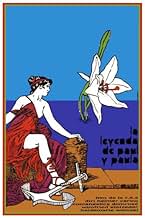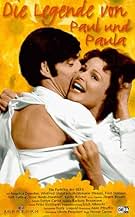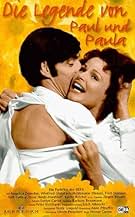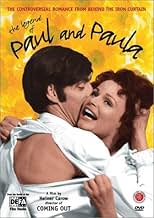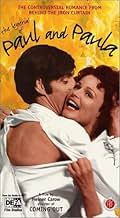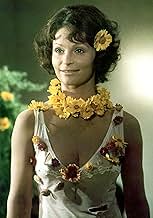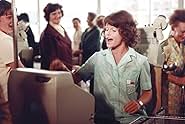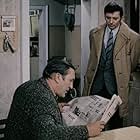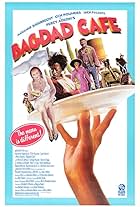Paul and Paula have had bad experiences with love: Paul is financially well off but has lost all affection for his wife, and Paula leads a troublesome life raising two children on her own. T... Read allPaul and Paula have had bad experiences with love: Paul is financially well off but has lost all affection for his wife, and Paula leads a troublesome life raising two children on her own. They meet and discover a strong passion for each other. Life seems like a dream when they'r... Read allPaul and Paula have had bad experiences with love: Paul is financially well off but has lost all affection for his wife, and Paula leads a troublesome life raising two children on her own. They meet and discover a strong passion for each other. Life seems like a dream when they're together - but their short flights from the burdens of reality are once and again interr... Read all
- Director
- Writers
- Stars
- Kollege Schmidt
- (as Frank Schenk)
- Director
- Writers
- All cast & crew
- Production, box office & more at IMDbPro
Featured reviews
Angelica Domröse plays Paula, a single mother who has a dead-end job and no social life. Winfried Glatzeder portrays Paul, who is unhappily married and is drawn to the free-spirited Paula. (Glatzeder has been called East Germany's Jean-Paul Belmondo. He didn't look much like Belmondo, and wouldn't have struck me as leading man material. However, I don't know enough about East German cinema to be aware of his competition.)
I've been told that the reason for this film's popularity in East Germany was because it contained subtle criticism of the regime, as well as depicting some PG-13 sex. I know East German films were subject to strict censorship, and, as in any similar regime, directors inserted criticisms in ways that were necessarily very indirect and symbolic.
The problem is that this movie only works if you can think of how you would have viewed it in East Berlin in 1973. I don't believe it's strong enough to succeed on its own merits in 2006.
Unlike some reviewers have hinted, the movie was never banned in the GDR, although it can't have been popular with the party big whigs. In fact it was even the most popular homegrown movie on the other side of the wall.
Pretty much all of the home appliances shown are authentic, yet they had to introduce coffee and cosmetics (which didn't really exist in the GDR at that time) to make it suitable for the political demagogues. Imagine it: the fact that there is a sentence in English ("excuse me, only one glass for you") could have led to a total ban of the entire movie.
What else is there to say? Try to understand the lyrics of the Band 'Puhdys' featured manifold in this flick and the in-between-the-lines-messages and how this was important to get thoughts of freedom past the GDR's government's census.
Well you guys probably don't and will never understand what kind of fruit GDR's socialism sprouted, but watching 'Paul and Paula' could theoretically help you get at least a glimpse.
Storyline
Did you know
- TriviaFemale DEFA-director Ingrid Reschke made preparations for the film, but her life was tragically cut short in a car accident, and Heiner Carow took over the project. He dedicated the film to her memory.
- ConnectionsEdited into Der nackte Osten - Erotik zwischen oben und unten (1994)
- SoundtracksGeh zu Ihr
Music by Peter Gotthardt
Lyrics by Ulrich Plenzdorf & Peter Gotthardt
Performed by Puhdys
VEB Deutsche Schallplatten Berlin AMIGA
- How long is The Legend of Paul and Paula?Powered by Alexa
Details
Contribute to this page


